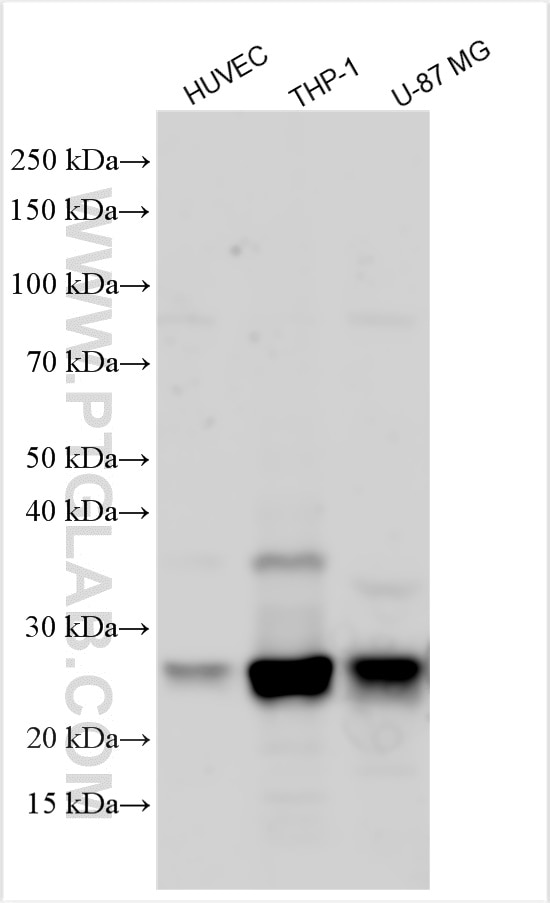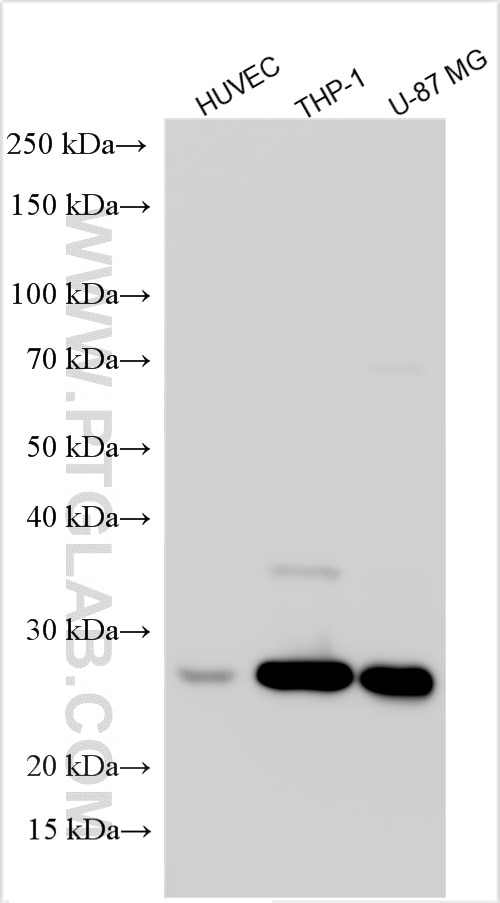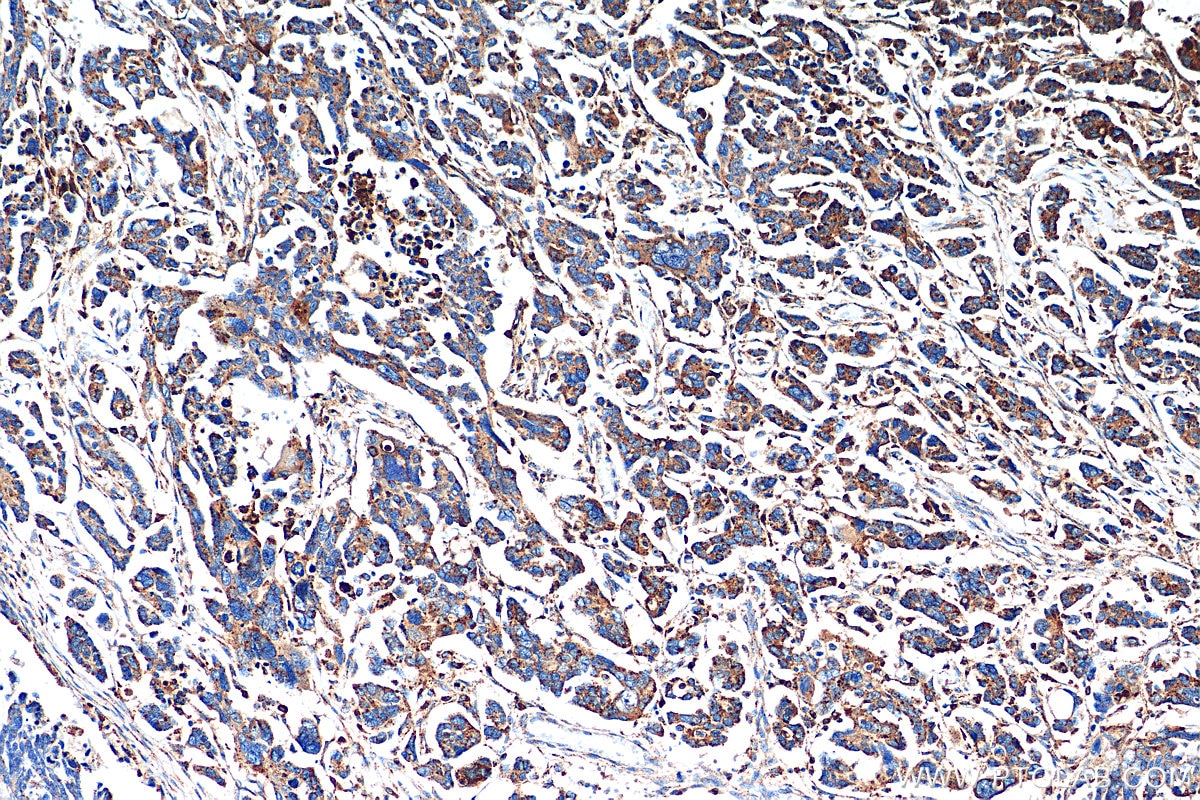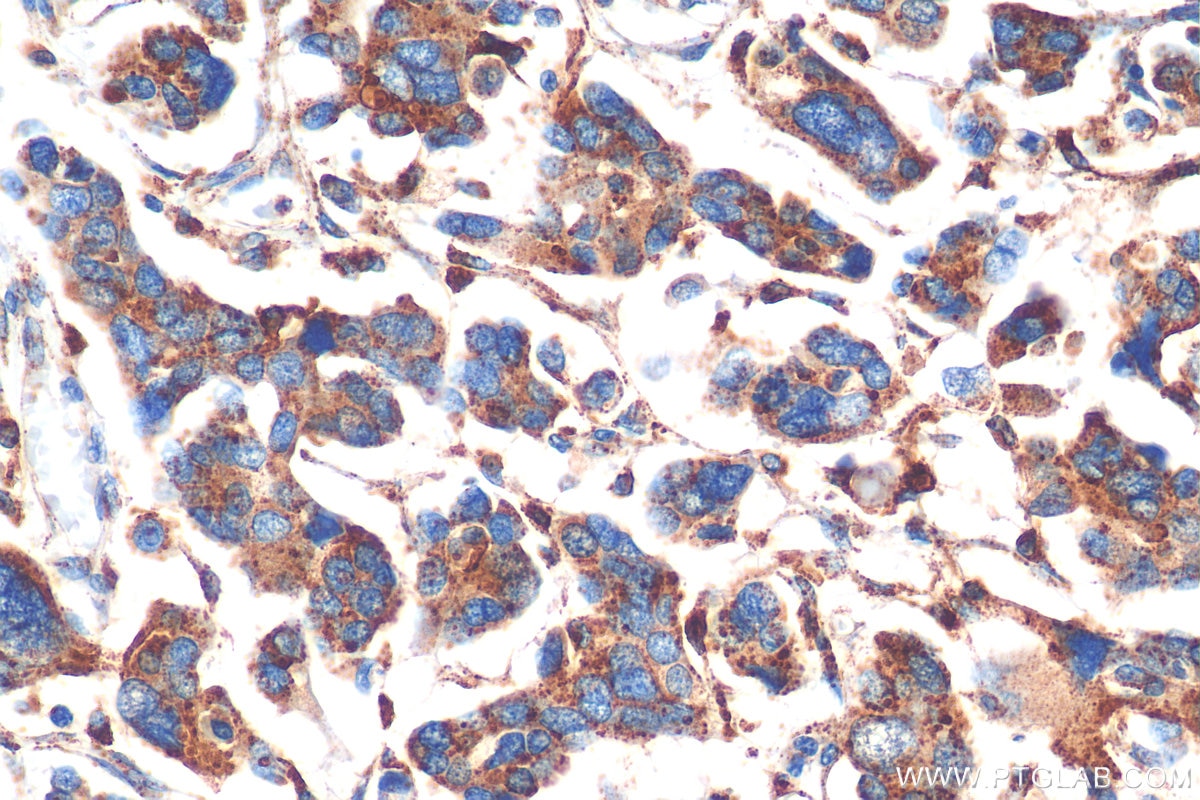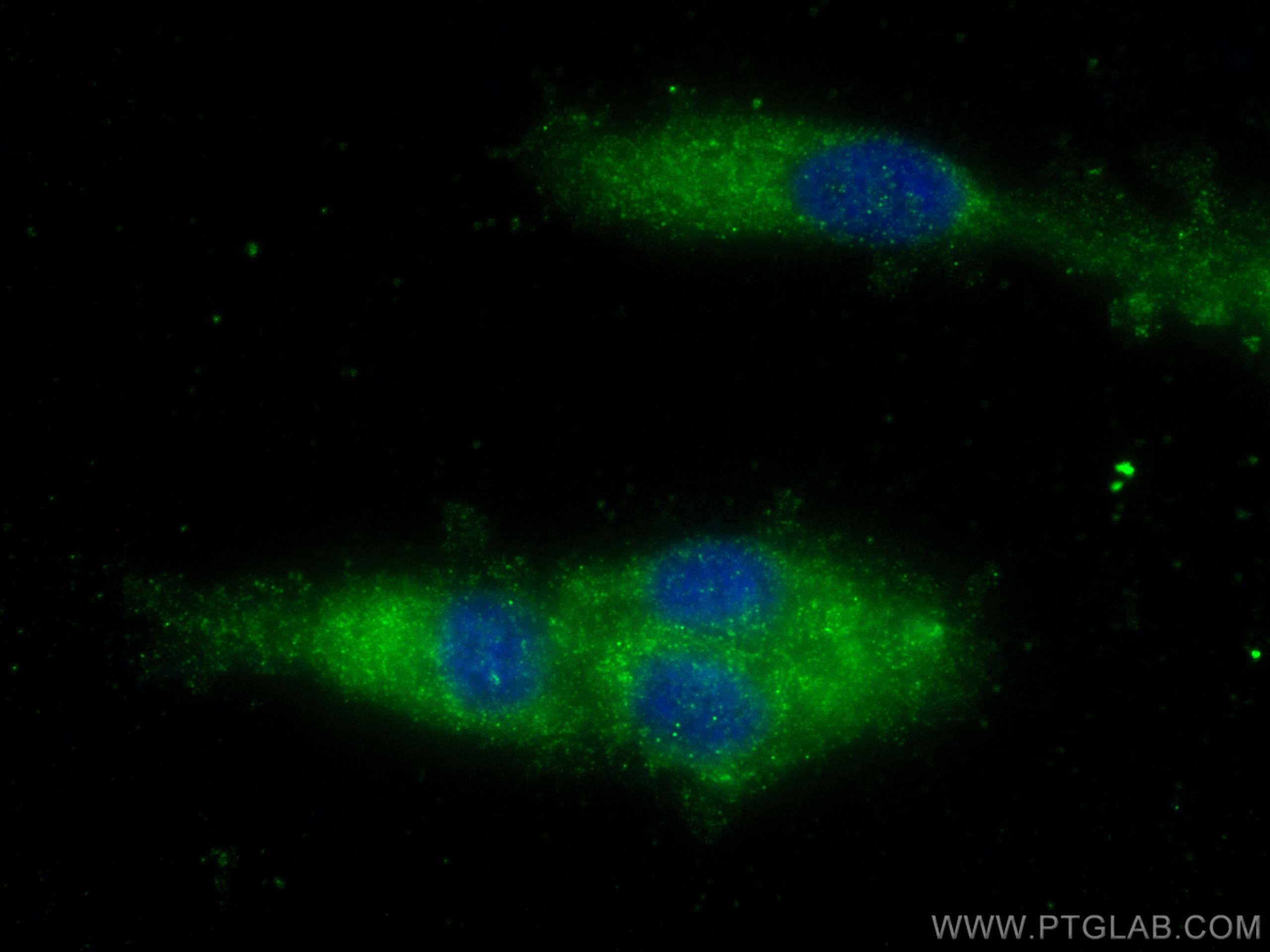Anticorps Polyclonal de lapin anti-Cathepsin S
Cathepsin S Polyclonal Antibody for WB, IHC, IF/ICC, ELISA
Hôte / Isotype
Lapin / IgG
Réactivité testée
Humain
Applications
WB, IHC, IF/ICC, ELISA
Conjugaison
Non conjugué
N° de cat : 27538-1-AP
Synonymes
Galerie de données de validation
Applications testées
| Résultats positifs en WB | cellules HUVEC, cellules MG U-87, cellules THP-1 |
| Résultats positifs en IHC | tissu de cancer du côlon humain, il est suggéré de démasquer l'antigène avec un tampon de TE buffer pH 9.0; (*) À défaut, 'le démasquage de l'antigène peut être 'effectué avec un tampon citrate pH 6,0. |
| Résultats positifs en IF/ICC | cellules MG U-87, |
Dilution recommandée
| Application | Dilution |
|---|---|
| Western Blot (WB) | WB : 1:1000-1:4000 |
| Immunohistochimie (IHC) | IHC : 1:50-1:500 |
| Immunofluorescence (IF)/ICC | IF/ICC : 1:200-1:800 |
| It is recommended that this reagent should be titrated in each testing system to obtain optimal results. | |
| Sample-dependent, check data in validation data gallery | |
Informations sur le produit
27538-1-AP cible Cathepsin S dans les applications de WB, IHC, IF/ICC, ELISA et montre une réactivité avec des échantillons Humain
| Réactivité | Humain |
| Hôte / Isotype | Lapin / IgG |
| Clonalité | Polyclonal |
| Type | Anticorps |
| Immunogène | Cathepsin S Protéine recombinante Ag25881 |
| Nom complet | cathepsin S |
| Masse moléculaire calculée | 37 kDa |
| Poids moléculaire observé | 25 kDa, 37 kDa |
| Numéro d’acquisition GenBank | BC002642 |
| Symbole du gène | CTSS |
| Identification du gène (NCBI) | 1520 |
| Conjugaison | Non conjugué |
| Forme | Liquide |
| Méthode de purification | Purification par affinité contre l'antigène |
| Tampon de stockage | PBS with 0.02% sodium azide and 50% glycerol |
| Conditions de stockage | Stocker à -20°C. Stable pendant un an après l'expédition. L'aliquotage n'est pas nécessaire pour le stockage à -20oC Les 20ul contiennent 0,1% de BSA. |
Informations générales
Cathepsin S (CTSS) is a cysteine protease that plays an important role in extracellular matrix degradation and remodeling, antigen presentation, inflammation, and angiogenesis; it has been identified as a radiation response gene. In malignant tumors, CTSS induces tumor proliferation, invasion and metastasis through various mechanisms. CTSS proteins could be detected in two forms, pro-CTSS (35-37 kDa) and active CTSS (25 kDa) (PMID: 30006610, PMID: 34208434). And in this publication, it was also reporeted that active CTSS was expressed at higher levels than pro-CTSS in the lysate (PMID: 34208434).
Protocole
| Product Specific Protocols | |
|---|---|
| WB protocol for Cathepsin S antibody 27538-1-AP | Download protocol |
| IHC protocol for Cathepsin S antibody 27538-1-AP | Download protocol |
| IF protocol for Cathepsin S antibody 27538-1-AP | Download protocol |
| Standard Protocols | |
|---|---|
| Click here to view our Standard Protocols |
